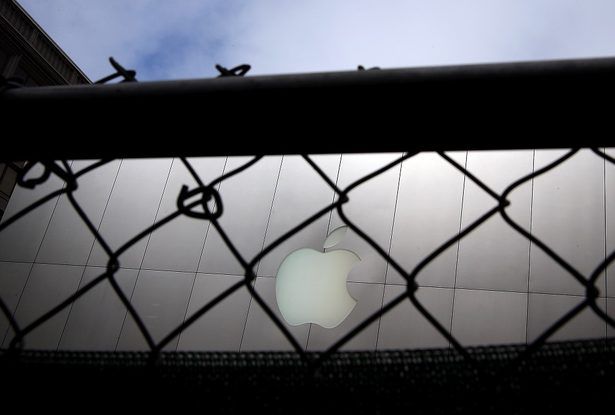
Apple is developing iPhone software that would make it impossible for the U.S. government—or even its own engineers—to hack into, according to reports.
Current iPhones can be accessed by Apple without a user's passcode through a troubleshooting feature that overrides security measures in order for new software to be installed. It is this loophole that is the subject of an ongoing battle between Apple and the Department of Justice centering around the iPhone used by one of the San Bernardino killers.
The New York Times reports Apple began working on a solution to the security gap even before the San Bernardino attacks in December 2015, citing a source close to the company. If implemented—and the report claims this is very likely—future iPhones would be impossible to break into using current methods.
Apple CEO Tim Cook publicly rejected last week's court order to assist the FBI break into the iPhone used by San Bernardino shooter Syed Rizwan Farook, saying he is ready to take the case all the way to the Supreme Court. The December 2 attack by Farook and his partner Tashfeen Malik killed 14 people and injured 22 others; the FBI claims important information relating to the attack could be on the iPhone 5C used by Farook.
Cook and other executives from major tech firms believe the court order could set a dangerous precedent for user privacy and security.
"We have great respect for the professionals at the FBI, and we believe their intentions are good," Cook said in a statement following the order. "Up to this point, we have done everything that is both within our power and within the law to help them.
"But now the U.S. government has asked us for something we simply do not have, and something we consider too dangerous to create. They have asked us to build a backdoor to the iPhone."
The backdoor Cook refers to is a loophole built into the iPhone's software that would allow important security features to be circumvented. This could be installed onto existing phones and used by investigators to access potentially critical information. However, in the wrong hands, the backdoor could be used to unlock any iPhone in someone's physical possession.
The development of an unhackable iPhone would be the latest in a long-running dispute between tech companies and law enforcement, with government officials warning that the use of strong encryption in devices is hindering the work of intelligence agencies.
"We have awesome new technology that creates a serious tension between two values we all treasure: privacy and safety," James Comey, director of the FBI, said in a post to the legal blog Lawfare earlier this week. "[That tension] should be resolved by the American people deciding how we want to govern ourselves in a world we have never seen before.
"We shouldn't drift to a place—or be pushed to a place by the loudest voices—because finding the right place, the right balance, will matter to every American for a very long time."
Uncommon Knowledge
Newsweek is committed to challenging conventional wisdom and finding connections in the search for common ground.
Newsweek is committed to challenging conventional wisdom and finding connections in the search for common ground.
About the writer
Anthony Cuthbertson is a staff writer at Newsweek, based in London.
Anthony's awards include Digital Writer of the Year (Online ... Read more
To read how Newsweek uses AI as a newsroom tool, Click here.






